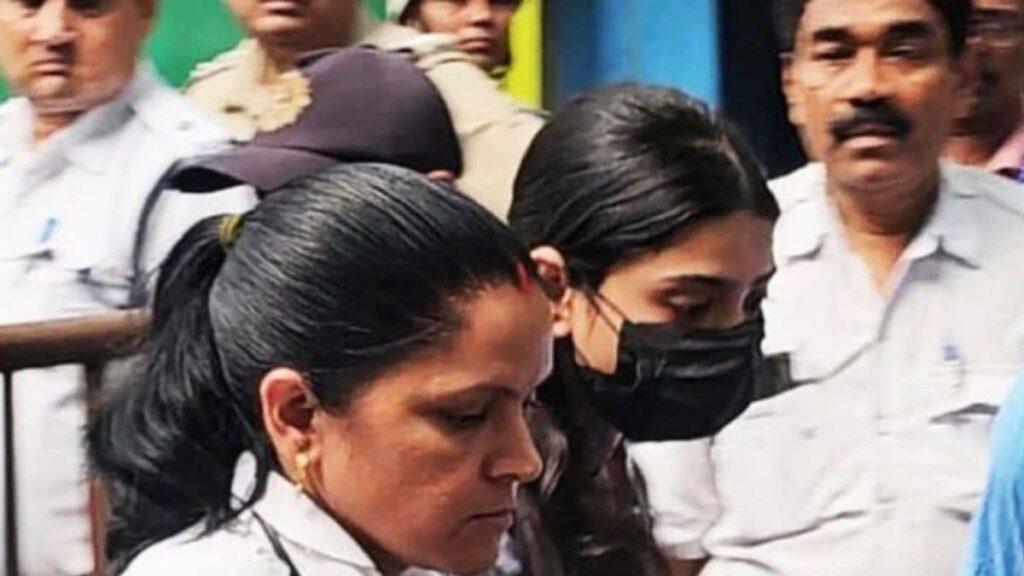The arrest of 22-year-old law student and Instagram influencer Sharmistha Panoli has ignited a nationwide debate on freedom of speech, religious sensitivity, and the role of social media in contemporary India. Her controversial remarks led to legal repercussions and polarized public opinion.
Who is Sharmistha Panoli?
Sharmistha Panoli is a fourth-year law student from Pune, Maharashtra, who gained prominence as a social media influencer. Her recent Instagram video criticizing Bollywood’s silence on Operation Sindoor, a military operation in Jammu and Kashmir, has brought her under intense scrutiny and legal trouble.
The Controversial Video
In the video that sparked the controversy, Sharmistha Panoli expressed frustration over the lack of condemnation from Bollywood celebrities regarding Operation Sindoor. While her aim seemed to be raising awareness, her choice of words was viewed by many as derogatory towards a particular religious community and the Prophet Muhammad. Although she later deleted the video and issued an unconditional apology, the damage had already been done as the video went viral.
The criticism intensified with multiple FIRs filed across different states. The clip triggered communal tensions and drew severe backlash.
Legal Proceedings and Charges
Kolkata Police issued notices to Sharmistha Panoli for interrogation, which she reportedly failed to respond to. She was later arrested from Gurugram and brought to Kolkata under transit remand. She was initially placed in 14-day judicial custody.
The charges include:
- Promoting enmity between different groups on grounds of religion (Section 153A IPC)
- Deliberate and malicious acts intended to outrage religious feelings (Section 295A IPC)
- Statements conducing to public mischief (Section 505 IPC)
Legal experts highlight that while India guarantees freedom of speech, reasonable restrictions under Article 19(2) allow for criminal action when religious harmony is endangered.

Public Reaction and Trending Hashtags
Social media exploded after news of her arrest. Hashtags such as #ReleaseSharmistha, #IStandWithSharmistha, and #FreeSpeech trended across platforms. Influencers, political commentators, and the general public remain divided over whether her arrest was justified or politically motivated.
Prominent voices in support include:
- Actress Kangana Ranaut, who warned against Bengal becoming “North Korea” and urged the judiciary to protect democracy.
- Dutch MP Geert Wilders, who called the arrest a “disgrace” and demanded her immediate release.
On the opposing side, some political and religious leaders stressed that her video could spark communal violence and demanded stringent punishment.
New Developments in the Case
🏥 Sharmistha’s Health in Custody
Recent reports confirmed that Sharmistha fell ill while in custody, complaining of chest pain and anxiety. She was briefly hospitalized before being discharged. Her lawyers claimed her health deteriorated due to harsh jail conditions and stress.
⚖️ Bail Granted with Conditions
The Kolkata Sessions Court has granted her interim bail. The judge, while granting relief, stated that though free speech is a fundamental right, it should not be misused to incite hatred or disrupt communal peace. Bail was allowed on the following conditions:
- She must submit her passport to prevent foreign travel.
- She cannot post any provocative content on social media during the case proceedings.
- She must appear before the court as and when summoned.
Broader Legal and Social Implications
The case highlights the delicate balance between digital expression and communal sensitivity. It also brings attention to how quickly legal machinery can react to online content and how influencers are now under increasing scrutiny.
This arrest has become a test case for interpreting hate speech laws in the digital era. Critics argue that the rapid action against Sharmistha contrasts with the inaction in other communal or hate speech cases, raising questions of selective enforcement.
Conclusion
The Sharmistha Panoli case is not just about a single video—it’s a reflection of India’s ongoing conflict between speech rights and social responsibility. As the legal process continues, the case may set important judicial precedents regarding what constitutes “intent” and “offense” in online speech.
Whether seen as a victim of political pressure or a reckless voice inciting hatred, Sharmistha’s arrest has undoubtedly sparked a national conversation on where the line is drawn in a democracy that values both freedom and order.
To read more Indian Laws, visit Legal Guide India



